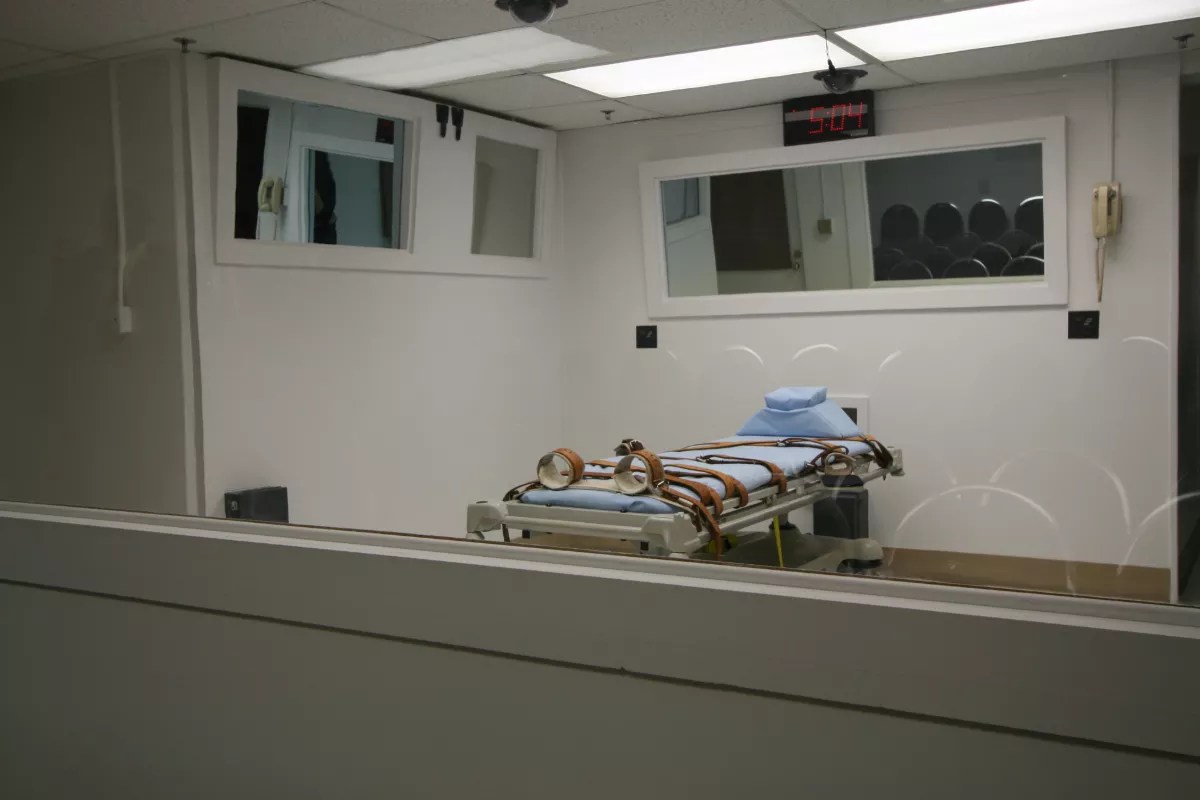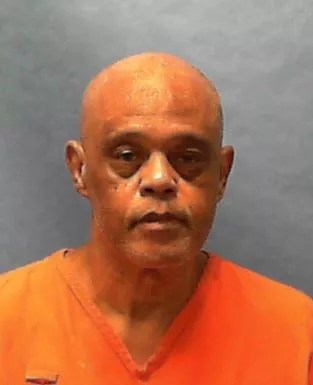
Photo by Florida Department of Corrections

Audio By Carbonatix
Florida carried out its tenth execution of the year Tuesday night.
Kayle Bates, a 67-year-old Black Muslim who was convicted of abducting and killing a woman in the Florida Panhandle in 1982, died by lethal injection at 6:17 p.m. at Florida State Prison in Raiford under a death warrant signed by Gov. Ron DeSantis. Bates said “no” when asked if he had any final words before the drugs began flowing, according to Alex Lanfranconi, a spokesman for DeSantis.
Under DeSantis, Florida has carried out nine executions so far this year – more than any other state and the most under any governor since the death penalty was reinstated in 1976.
Bates was the tenth person and fourth veteran executed by the state this year, according to a recent letter from a group of veterans urging DeSantis to halt executions of former service members.

Florida executed 67-year-old veteran Kayle Bates over the 1982 murder of Janet White.
Photo by Florida Department of Corrections
Bates was convicted of first-degree murder, kidnapping, armed robbery, and attempted sexual battery in the June 14, 1982, killing of Janet White in the Florida Panhandle, according to the Associated Press. Bates reportedly abducted White from the State Farm insurance office where she worked, took her into the woods behind the building, attempted to rape her, and stabbed her to death.
Attorneys for Bates recently filed appeals with the Florida Supreme Court and the U.S. Supreme Court, as well as a federal lawsuit claiming DeSantis’ process for signing death warrants was discriminatory.
According to the suit, of the 21 executions that DeSantis has authorized as of last month, 95 percent involved white victims.
However, the suit was dismissed after the judge found problems with its statistical analysis.
The Florida Supreme Court also denied Bates’ pending claims, including arguments that evidence of organic brain damage had been inadequately considered in his case. The court ruled that Bates has had three decades to raise these claims.
Unlike in states such as Georgia and Texas, where judges set execution dates, the decision of who is put to death in Florida next rests entirely with the governor.
Nineteen people in Florida have been executed since DeSantis took office in 2019. After a three-year COVID hiatus, they resumed in 2023 – the year DeSantis notably launched his presidential campaign – when Florida carried out six, the most in a single year of his tenure until now.
Executions in Florida are carried out using a three-drug lethal injection: a sedative, a paralytic, and a drug that stops the heart, according to the Florida Department of Corrections (FDOC).
Thirty people have been exonerated from Florida’s death row since 1973 – more than any U.S. state, according to the Death Penalty Information Center, a Washington, D.C.-based nonprofit that studies capital punishment.
Clifford Williams Jr., the state’s most recent death row exoneree, was released from prison in March 2019 after serving 43 years for a murder he didn’t commit. Last January, after less than five years as a free man, he died at age 80.